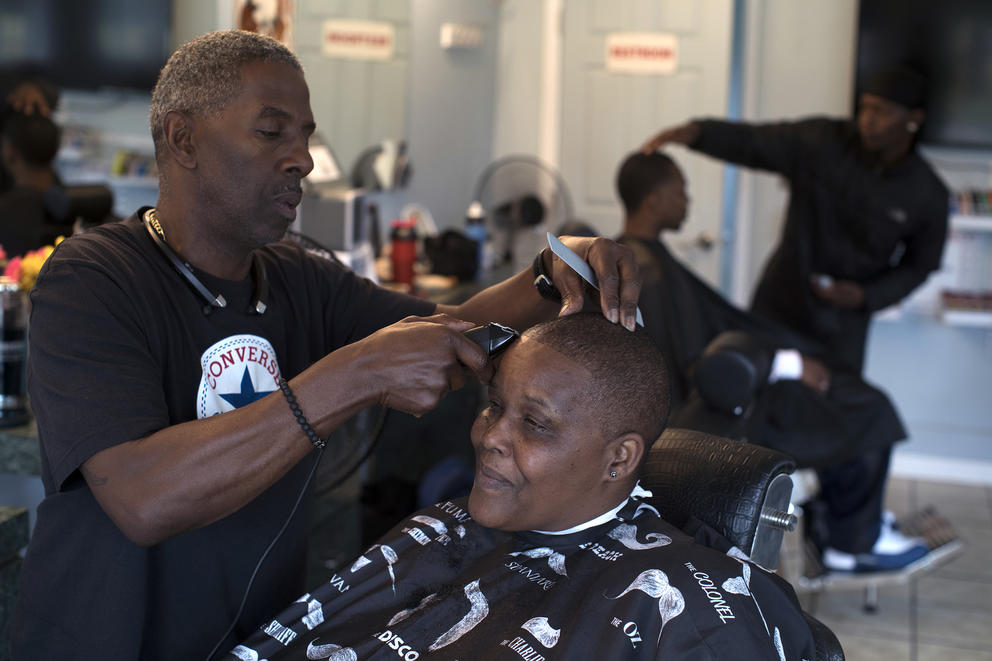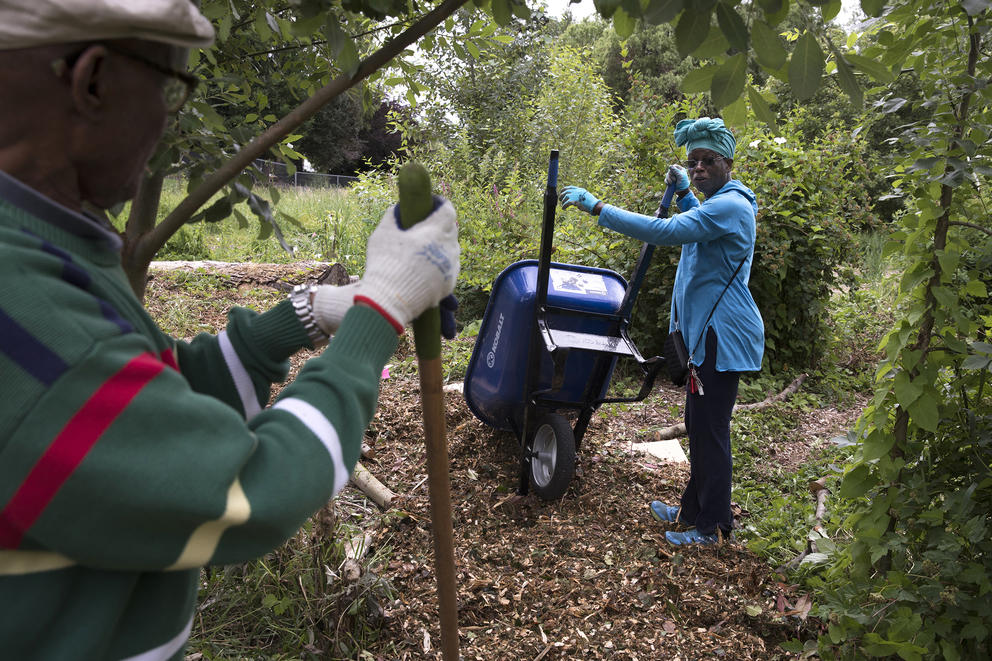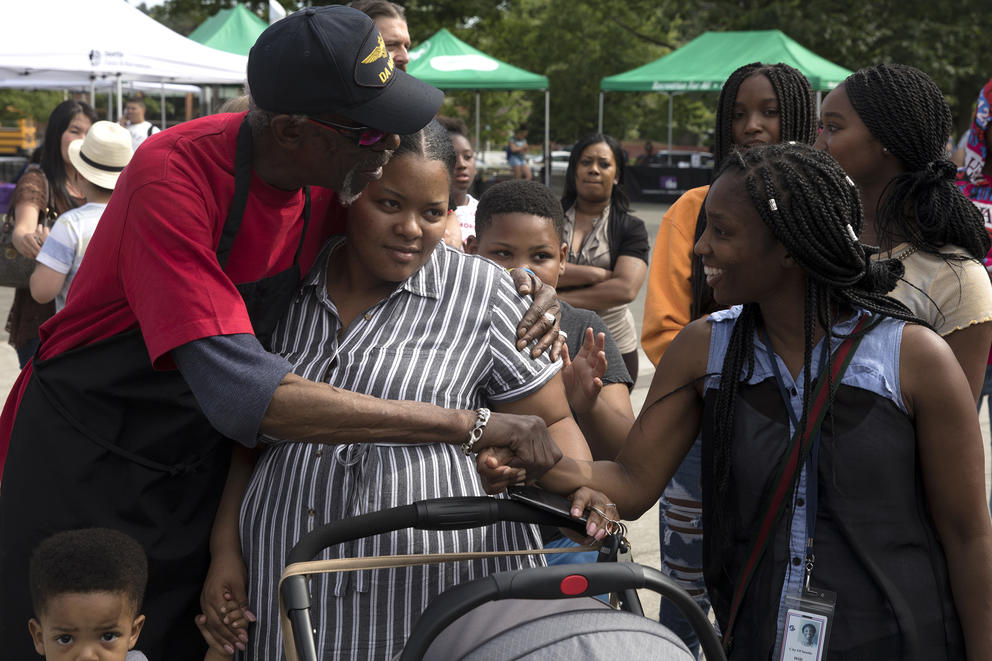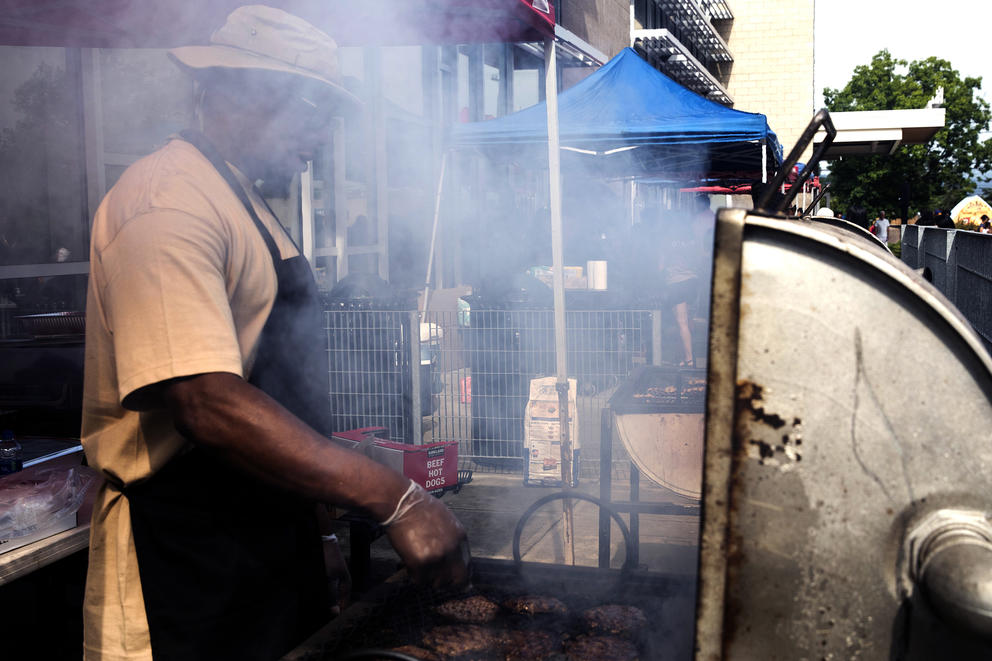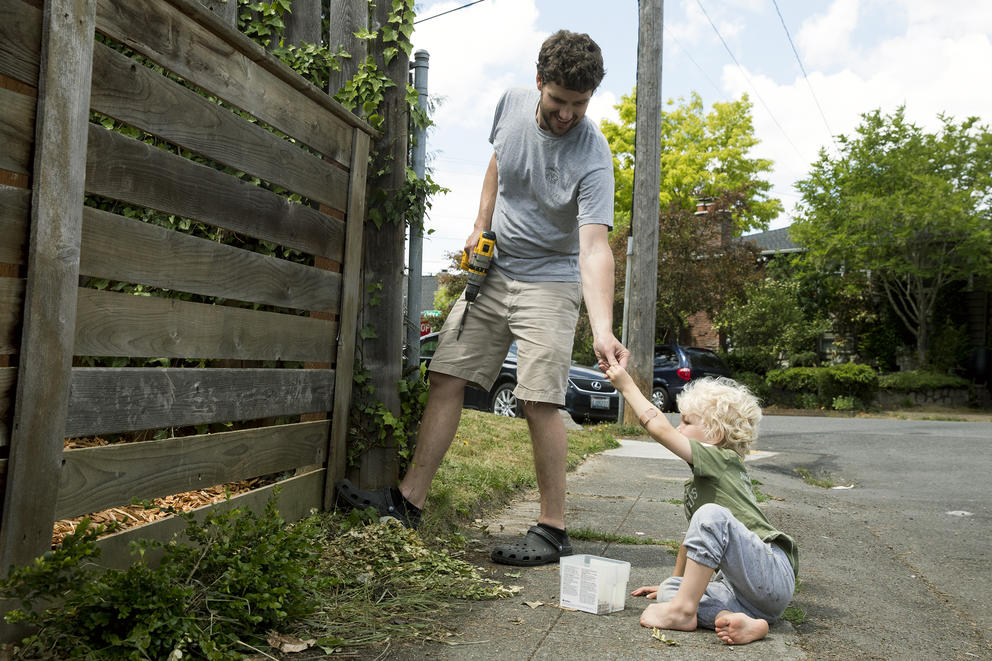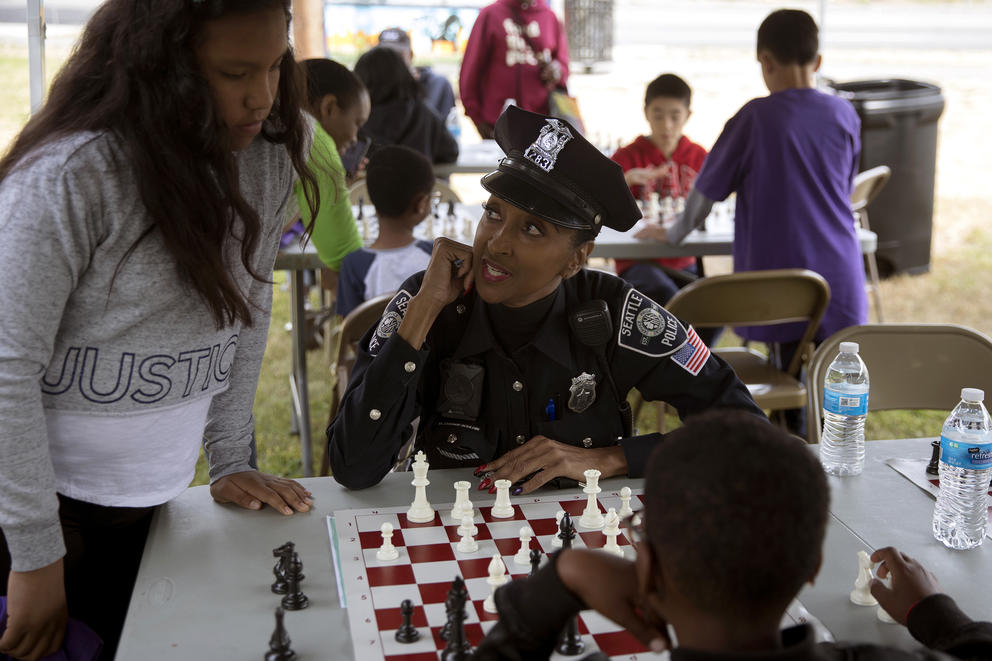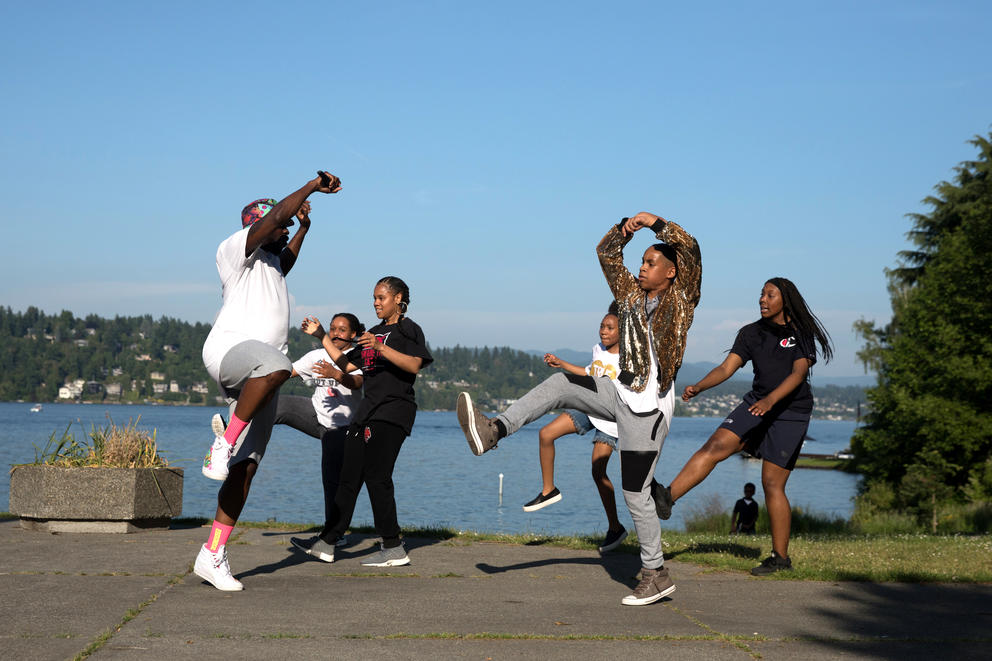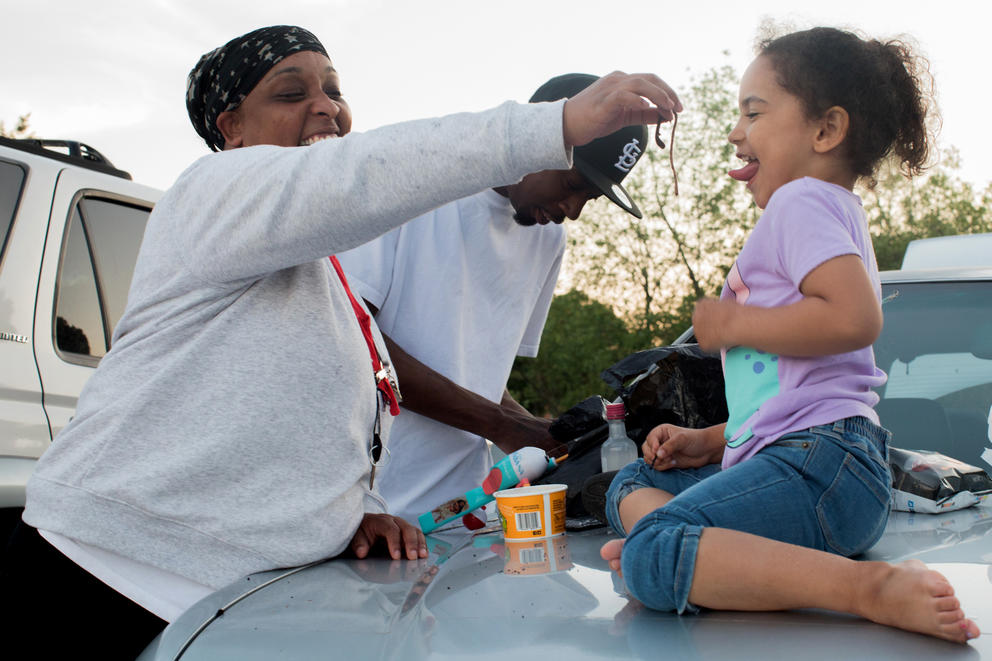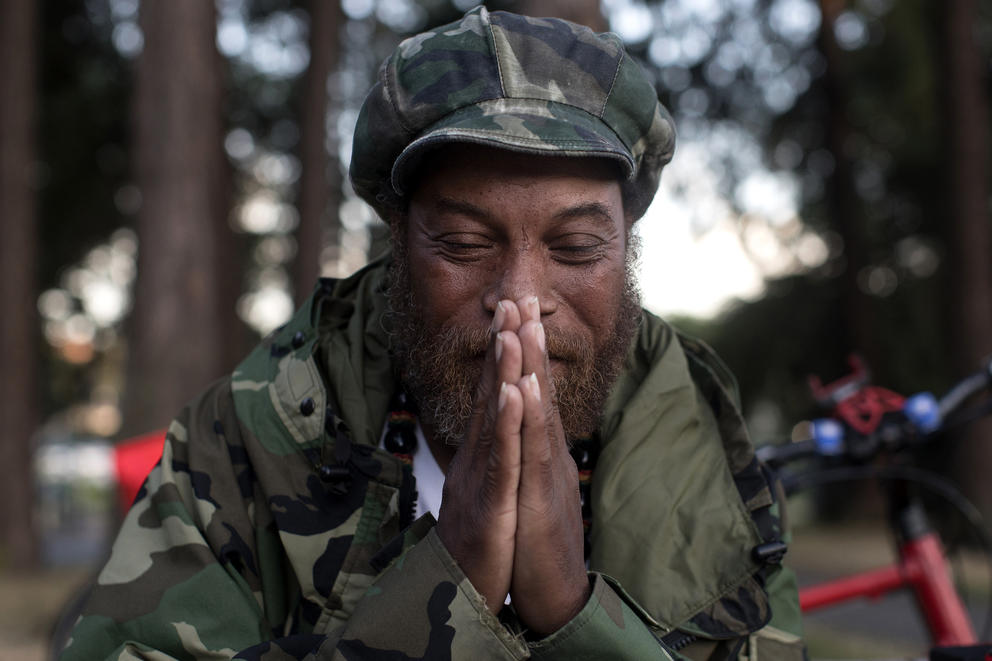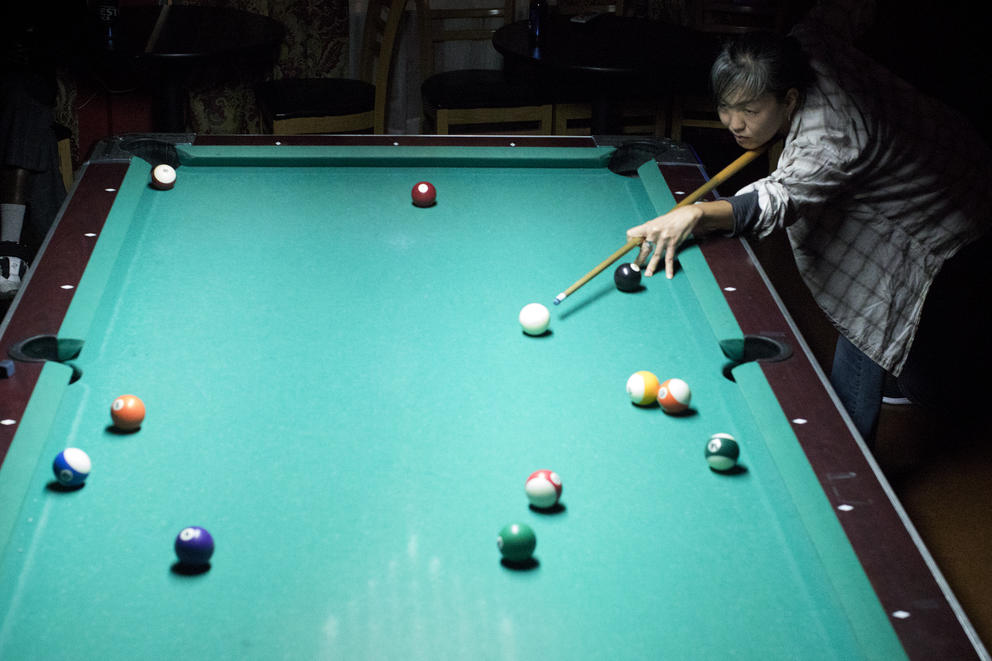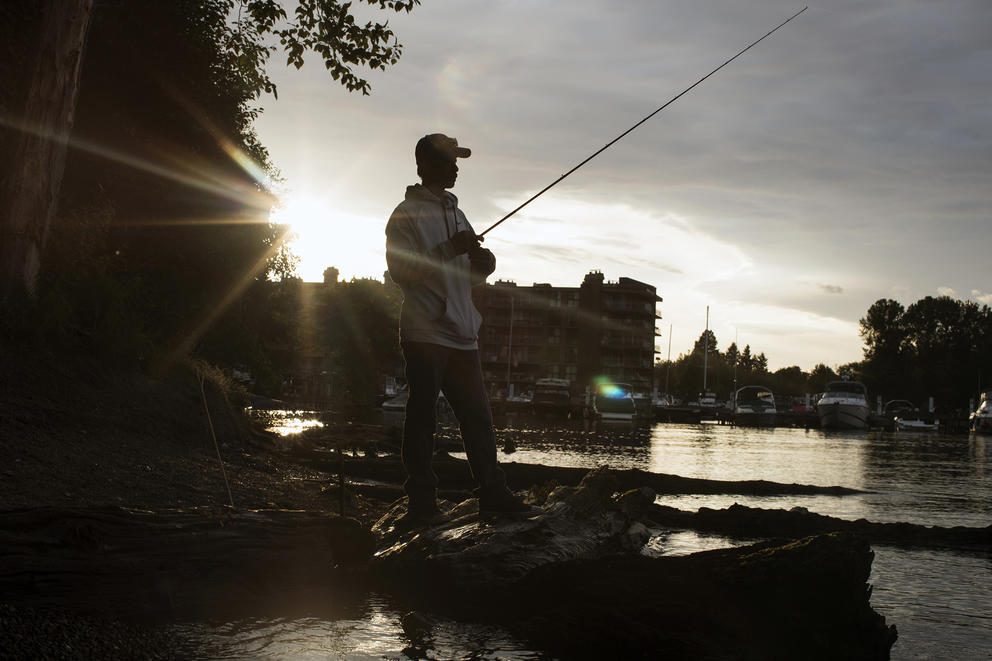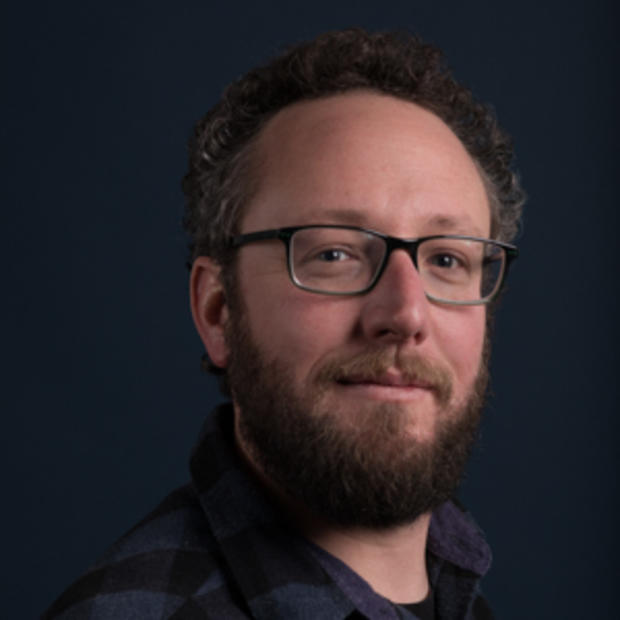Marqueisha Phillips and her 17-month-old son, Dakari Simmons, were critically injured in an exchange of gunfire at Pritchard Island Beach. Phillips, a mother of two, endured multiple surgeries to begin repairing the damage done to her lungs. Doctors told her Dakari was too young for surgery and would likely have to live with a small bullet fragment in his back.
“We came down to Pritchard because we thought it would be quieter than most of the other beaches in the south end,” says Phillips, who was putting something in her SUV with her sister when two vehicles started chasing each other in the parking lot. “I heard the shots go off, and remember holding my son thinking, ‘Oh my gosh’ they’re shooting.’”
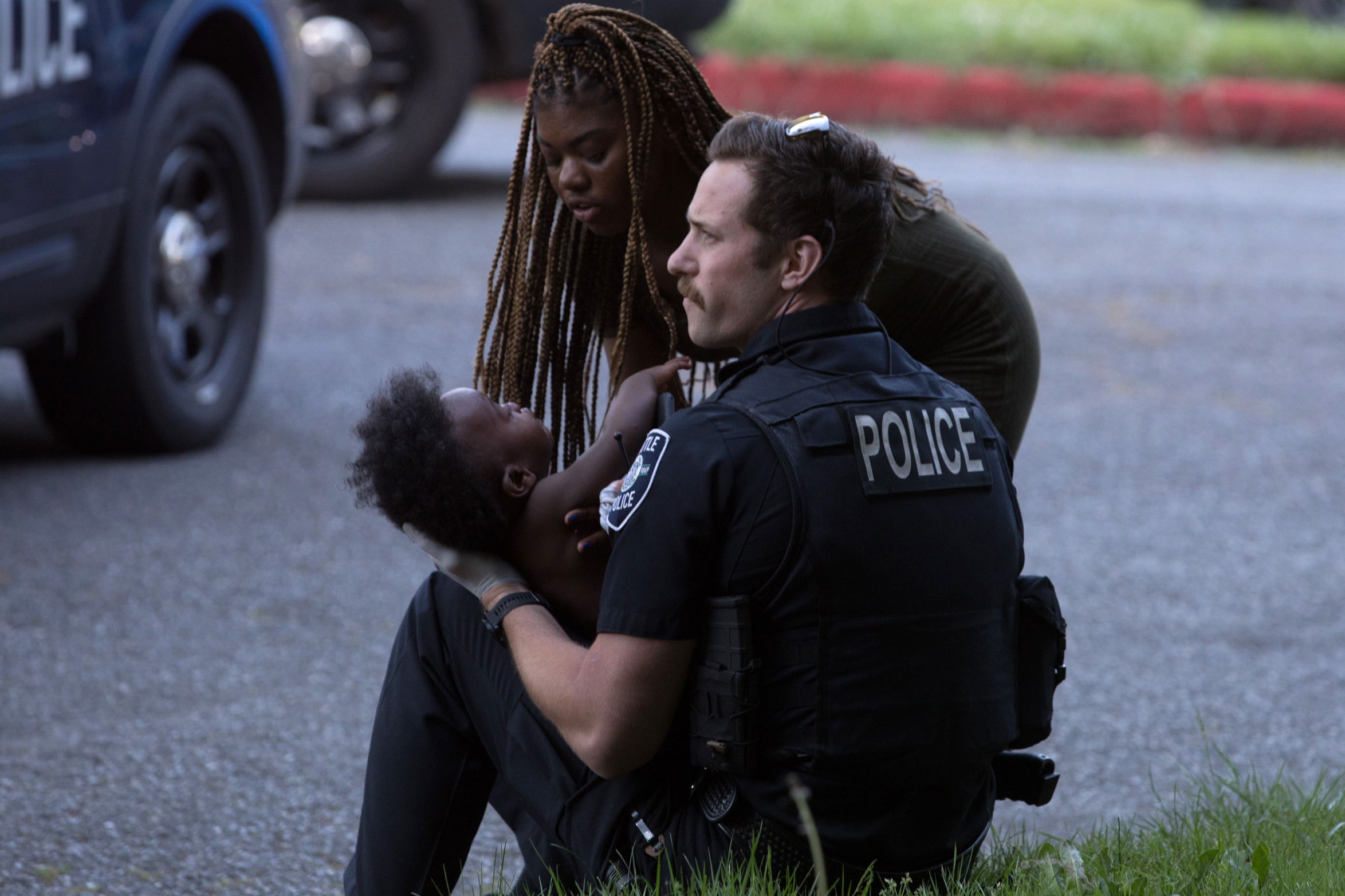
How does a neighborhood move forward in the wake of violence?
Rainier Beach didn’t hold a massive vigil after the Memorial Day shooting. Residents simply continued on with life as they always have: praying, tilling farmland, gathering over lunch, dancing to a jukebox at a local bar.
“It’s what the people who live in the neighborhood make of it,” says Reynaldo Sampson, who grew up in Rainier Beach and graduated from Rainier Beach High School in 2003. Sampson says it isn’t fair if you consider just one aspect of a neighborhood. It’s as if your house is dirty and people who visit may not see the positives; they might have a bad impression. But, he adds, it’s a wonderful place.
Seattle Police gang unit detectives arrested a 20-year-old man in connection with the May 27 shooting. Phillips spent 13 days recovering at Harborview Medical Center, while her son recuperated with his grandmother. The Bothell resident says she’ll never return to Pritchard Beach, but she expects to return to the south end to visit friends and family.
Crosscut staff photographer Matt M. McKnight, who lives next to Pritchard Beach and rushed to the scene when he heard gunfire and police sirens, interviewed Phillips at her home and spent the past few weeks documenting the ordinary lives of his neighbors.
Diane Larson-Sinclair, 52, of Renton, gets a trim from a barber named Tony at All In The Cut in Seattle’s Rainier Beach area. She's been going there for four years. "It's my ’hood, I grew up here and I always come back," says Larson-Sinclair. "I don't go to church but I pray. And I keep praying for the younger generations, that they will show each other love and compassion."
Raushanah Elamin has lived in South Seattle for more than 40 years. On a recent Friday morning, she joined a group of volunteers at Rainier Beach Urban Farm and Wetlands to help prepare the space for the annual Farm Fest this summer by transporting wheelbarrows full of wood chips to create various paths for visitors. "There's this perception of Rainier Beach that it's crime-ridden, but it's actually really beautiful," says Elamin. “The city is changing but places like this allow us to unite. Neighbors can build trust between each other here and that helps create safer and more loving communities."
Jerry L. Gentry, 72, embraces community members during a recent Juneteenth celebration at the Rainier Beach Community Center. Gentry is a retired U.S. Navy veteran who moved to the neighborhood in 2006, when he was offered housing in a church on South Cloverdale Street, where he had been a volunteer. The church has since become the Atlantic Street Family Resource Center, where Gentry can often be found outside talking with neighbors. "Sometimes someone needs a little rainbow in their cloud, if only for a minute," he says.
James Taylor volunteers at the grill during a recent Juneteenth celebration at the Rainier Beach Community Center. "Things like this happen sometimes," says Taylor of the gun violence in his community. "We can't give up. We've got to trust in each other and keep trying to make our neighborhood a better place."
Fred Carley and his son, George, 4, work on the fence outside their home just a block away from Pritchard Island Beach in the Rainier Beach. Carley has lived here with his wife, Jessen, for the past six years and are raising two kids. "We weren't home when it happened," Carley says, referring to the Memorial Day shooting at the beach, where their family frequently goes. "A bunch of our friends started frantically texting us when they heard of the news, and we posted an update on social media that everyone was OK."
"This can happen anywhere. You can't run from everything," says Carley, who teaches at Seattle Academy.
Seattle Police Detective Denise “Cookie” Bouldin discusses chess moves with kids during a recent Sunday afternoon chess session at the future site of Detective Cookie’s Chess Park at Rainier Avenue South, at South Barton Place and 51st Avenue South in Rainier Beach. Bouldin, who has lived in the neighborhood for the past 30 years, has been a leader in creating programs to deter young people from criminal activity. “You can’t let a negative event that takes place in your community define it. You’ve got to reclaim your parks and community spaces as a positive place to be. You’ve got to let everyone know that you’re not going to run away,” Bouldin says.
Catrina L., of nearby Boulevard Park, relaxes with friends in the parking lot of Atlantic City Boat Ramp in Rainier Beach. She has lived in Seattle all of her life, but recently moved from the Central District, where she grew up. “I can’t stay away from here, it’s where my people are. I love the way they act, the way they talk, They keep it 100. This is my therapy place,” she explains.
Catrina’s connection to gun violence in the Seattle area is recent and raw: her cousin Andre Bryant was recently killed outside of a Safeway in SeaTac. “He was murdered by someone he knew, someone that looks like him, someone he used to hang with. It's absolutely senseless,” she says. She laments that she attended his funeral just days ago. "I don’t think people are going to be able to come together until elders can actually sit down and speak with the youth in a lasting and meaningful way,” she says. "We’re not only losing our own children. We’re losing our friendships behind the stuff our kids are doing. If one kid decides he’s going to kill another person’s child, and we were friends growing up and friends now, it’s going to tear those friendships apart. One kid is lost to the system and another is buried. It’s a no-win situation and everybody is grieving."
Tyrone "Koach T" Crosby of N The Kutt Dance Studio performs an “ATL stomp” style of dance with Krashane Sims, 15 (in the sequined jacket), and other members of the dance crew, during a Rainier Avenue Radio community dance session at Pritchard Beach on the Friday following the Memorial Day shooting. "It wasn't even a question of whether we were going to continue with our dance series here," says organizer Tony Benton of Rainier Avenue Radio. "This is our park and it's our community."
Ashley Jefferson plays with Kammariah Conley, 4, while Kammariah’s father, James Conley, prepares a fishing rod near the Atlantic City Boat Launch in Rainier Beach. "People take their family to these local parks to go swimming. People can't be hopping out of cars and shooting over their hoods at each other," says Jefferson. "I grew up here and I sometimes wonder what's happening with our youngest. It's easier now for them to get a gun than it is to risk getting their ass whooped instead."
Frederick Suazo, 51, of Rainier Beach, sits at a picnic table in Beer Sheva Park. Suazo has been riding his bike around the neighborhood for the past seven years, playing reggae through a small speaker. He can be heard from a distance whenever he approaches. "Negativity is always around. The devil is always around and doesn't want you to be good," he says. "When people don't love me, I show them love and positivity. One love.”
Soya Jung, 49, shoots pool at Souvanny’s Tavern in Rainier Beach. “Shooting pool is sometimes how I decompress over a few drinks. It’s a fun way to get to know people,” she says. Of her longtime neighborhood bar, Jung says: “People really do take care of and look out for each other here,” Jung has lived in Seattle since the early '90s and moved to the neighborhood in 2001. “I live in a condo complex across the street. There’s a gate and surveillance cameras to protect us. But those things don’t keep us safer. It’s being out and involved in the community, getting to know each other that does."
Keo Manivanh, 39, of Renton, drops his fishing line in Lake Washington at Chinook Beach Park in Rainier Beach during a recent sunset trip to his favorite spot. "This is my peace, I could catch nothing all day and still enjoy myself," says Manivanh, who graduated from Rainier Beach High School in 1998. "Back in the day, things were a lot tougher around here, crime was much higher and there were more gangs." Manivanh is now a father of three and a licensed contractor in a booming housing market. "When bad stuff happens in this community or any others, I try to sit down with my kids and talk through it with them. They need our help figuring it all out," he says. "We've always got to be respectful of our neighbors. It goes a long way. To look for the worst in others is not good; we've got to give each other the benefit of the doubt."


